Results: Nationalism Or Patriotism -- The Big Difference And Its Implications
Published on 02/14/2017
QUESTIONS
GO to COMMENTS
Comments
1.
1.
"The difference between patriotism and nationalism is that the patriot is proud of his country for what it does , and the nationalist is proud of his country no matter what it does ; the first attitude creates a feeling of responsibility while the second a feeling of blind arrogance that leads to a war". This quote is by American journalist Sydney J. Harris. George Orwell also has a famous quote on the difference between the two, and the dangers of nationalism. "Nationalism is not to be confused with patriotism. Both words are normally used in so vague a way that any definition is liable to be challenged, but one must draw a distinction between them, since two different and even opposing ideas are involved. By 'patriotism' I mean devotion to a particular place and a particular way of life, which one believes to be the best in the world but has no wish to force on other people. Patriotism is of its nature defensive, both militarily and culturally. Nationalism, on the other hand, is inseparable from the desire for power. The abiding purpose of every nationalist is to secure more power and more prestige, not for himself but for the nation or other unit in which he has chosen to sink his own individuality." Do you consider yourself patriotic or a nationalist?
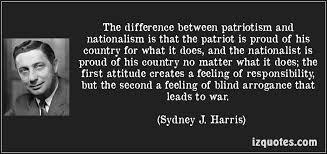
Patriotic
39%
757 votes
A Nationalist
6%
118 votes
Neither
20%
397 votes
Not sure
22%
441 votes
A mixture of the two
13%
249 votes
2.
2.
George Orwell may have died over 60 years ago, but many of his quotes are more pertinent now than ever before. His work is marked by keen intelligence and wit, a profound awareness of social injustice, an intense opposition to totalitarianism, a passion for clarity in language, and a belief in democratic socialism. Which of these Orwell quotes do you see truth in given what is happening in the world and at home at the present?
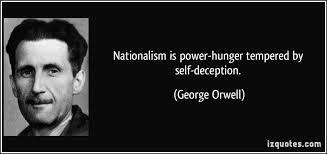
He who controls the past controls the future. He who controls the present controls the past.
15%
299 votes
In a time of deceit telling the truth is a revolutionary act
21%
417 votes
All animals are equal, but some animals are more equal than others.
16%
317 votes
The creatures outside looked from pig to man, and from man to pig, and from pig to man again; but already it was impossible to say which was which
11%
213 votes
The most effective way to destroy people is to deny and obliterate their own understanding of their history.
20%
388 votes
Political language is designed to make lies sound truthful and murder respectable, and to give an appearance of solidity to pure wind
19%
366 votes
But if thought corrupts language, language can also corrupt thought
15%
288 votes
Until they became conscious they will never rebel, and until after they have rebelled they cannot become conscious.
8%
165 votes
Perhaps a lunatic was simply a minority of one
10%
195 votes
Power is in tearing human minds to pieces and putting them together again in new shapes of your own choosing
13%
256 votes
The Party seeks power entirely for its own sake. We are not interested in the good of others; we are interested solely in power, pure power.
17%
336 votes
All of them
12%
228 votes
None
42%
819 votes
3.
3.
There are those who argue that Nationalism is necessary to have a well-functioning democracy. They point to Nationalism's objective of having all citizens of the nation identify with the same culture, among other criteria. This is accomplished by standardizing the language, education, legal codes, media, and so on. They say that only within such a community is it possible for a modern democracy to function; that without such a national community, it's impossible to have democratic debate. What they say may well have some merit. But one can't help but think about the political excesses of the 1930s, the protectionism and the xenophobic zeal that were all part of the Nationalistic wave that swept the world following the First World War. It ultimately resulted in Japan's invasion of Manchuria, Nazi Germany's invasion of Poland and Japan's bombing of Pearl Harbor, ending with Hiroshima. Something to think about as we grapple with the challenges facing our world today. Perhaps what we need is a sense of patriotism, and a feeling that our country is great, but can still be even greater. Not the feeling that our country is great, and no other country even comes close. Nor that we can only think of ourselves to the exclusion of all others. Do you agree or disagree?
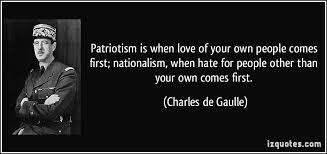
Agree
26%
513 votes
Disagree
13%
263 votes
Not sure
60%
1186 votes
4.
4.
When nationalism goes too far, as it seems to be heading, it becomes like a virus, spreading quickly and destructively. In the past few months, the rise in hate crimes has caused much concern as these sleeping cells of hatred seem to have been stirred. Recently in Quebec City, a lone gunman opened fire at a Quebec City mosque during Sunday evening prayers, killing six and wounding many more. The assailant was Alexandre Bissonnette, a 27-year-old Quebecer whose Facebook profile page is full of pro-Trump rants and right-wing sympathies, and was a known sympathizer with the "alt right" movement in the United States, based on media interviews with those who know him. As tragic as this situation was, there was no mention of it from Trump (and this is a man who takes to Twitter to call out Meryl Streep and Nordstoms), although he did take to Twitter to to denounce a near-attack on the world famous Louvre Museum in Paris. Do you feel Trump should have publicly said something about the Quebec City shooting?
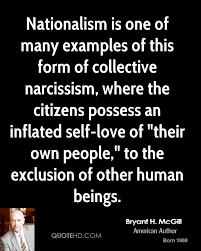
Absolutely
26%
517 votes
No, why should he?
23%
452 votes
Not sure
51%
993 votes
5.
5.
There has also been a rash of hate crimes across Canada and the United States, including Swastikas carved into trees, snow-covered cars in Quebec and spray-painted onto synagogues. Muslim women and children have been verbally and physically assaulted in both countries. Groups like the Soldiers of Odin, an anti-immigrant street patrol group founded in Kemi, Finland, has been seen patrolling the streets of both the U.S. and Canada (and make no mistake about it, they are white supremacists) and the number of Klan-affiliated groups in America grew to 190, up from 72 in 2014. Do you fear for the future of our two countries?
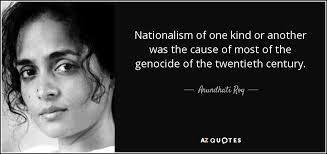
Yes, I do fear for our future
38%
744 votes
No, I am optimistic for our future
19%
370 votes
Not sure
38%
754 votes
I am happy about the future because I agree with what is happening
5%
94 votes
COMMENTS


